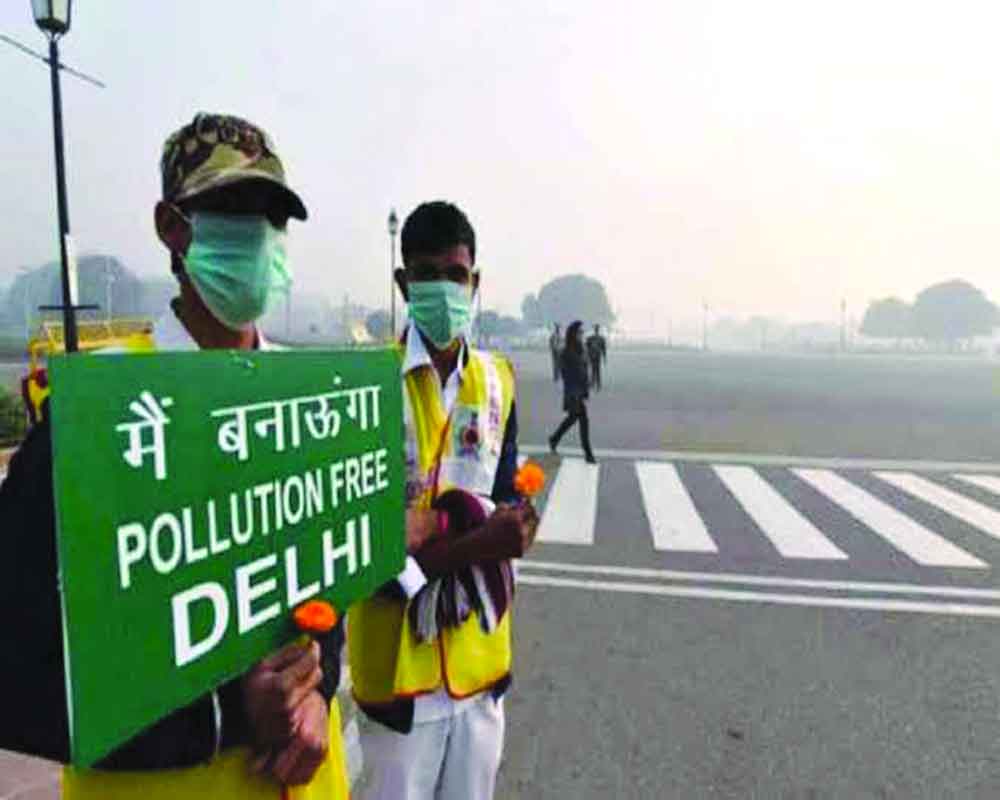The spectre of climate change is looming large and pollution cannot be stopped by turning a blind eye to it. In the February 8 Assembly polls, Delhiites need to elect a Government that makes environmental policies its priority
Delhi is heading for polls on February 8 to elect 70 members to the Legislative Assembly and needless to say, campaigning by political parties across the national Capital is expected to reach a fever pitch soon. Like always, this election, too, will witness a plethora of populist issues being made a poll plank by the candidates and their star campaigners as they do the rounds of the city. Populism has become an integral aspect of elections mainly due to the fact that the people of one of the world’s largest democracies have become used to being wooed with sops and benefits. Whether it is regularisation of illegal colonies and structures or subsidised electricity and so on, we just lap it up.
However, do we ever stop to think what the cost of these sops is and who is footing the bill? The answer is that we the people or the electorate are eventually going to pay for the sops, collectively. The sole beneficiary in this will be the political party we elect, who will be laughing all the way to the seat of power, for the next five years.
We, as voters, must critically evaluate the promises being made by the Government in power and all the other contending parties and see what their commitment is for pressing issues such as climate change and the environment. And, we also need to look at the environmental cost of an election. This also needs to be audited and made public in order to ensure that the people realise the environmental costs of this democratic exercise and which parties have had the smallest carbon footprint. This will usher in a positive change in the thinking of the voter which will in turn compel the parties to shun anti-environmental activities in the form of excess use of fuel, plastic and paper during campaigning. The people of Delhi need to question the Government and ask it what it has done to safeguard the environment and also asses what the environment-related promises and assurances other contesting parties are bringing to the table. The subject of pollution in Delhi has been a hotly debated matter, with the ruling Aam Aadmi Party (AAP) claiming tremendous success in reining in the same with the help of the vehicle rationing initiative the Odd-Even Scheme. However, as is the norm in politics, these initiatives have been heavily criticised by the Central Government.
Both the Centre and the Delhi Government have been trading charges over this key issue and blaming each other for the sad state of affairs in the Capital.
As the common man continued to suffer the impact of the pollution shrouding the city in a pall of smog, the judiciary took it upon itself to express reservations on the efficacy of the scheme in controlling the spiraling pollution levels in Delhi-NCR and pulled up the Centre, the Delhi Government and even the neighbouring States of Punjab, Haryana and Uttar Pradesh on the environmental crisis caused by crop residue burning by farmers.
The Supreme Court also directed the Central Government to assess the feasibility of the use of hydrogen-based fuel technology in the Capital to mitigate air pollution.
However, the fact remains that things should not have come to such a pass. We need clear, tangible and more-importantly quantifiable results against efforts undertaken to protect the environment by all stakeholders. The city is what we will leave to the future generations and it cannot be inhospitable due to pollution that has reached unmanagable levels and turned it into a “gas chamber”, choking and killing the people that reside in it.
The spectre of climate change is looming large and pollution cannot be stopped by turning a blind eye to it. Combatting pollution and climate change need a concentrated and sincere effort by the Government in power that has the resolve and the firm mandate of the people behind it. So this time let us elect the environment. A Government that makes environmental policies its priority will then automatically get elected.
(The writer is an environmental journalist)


























